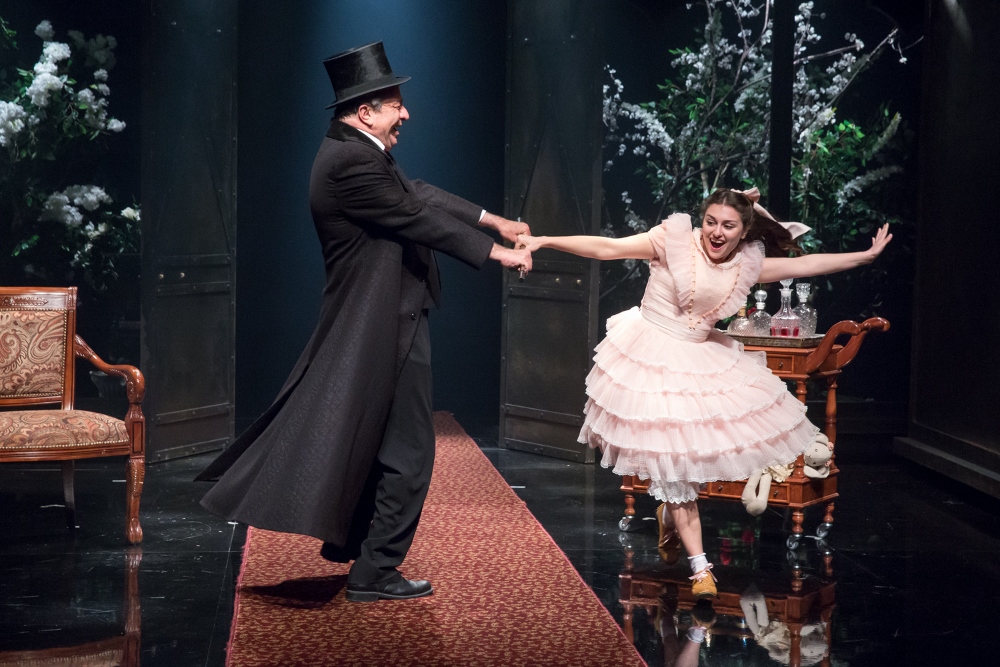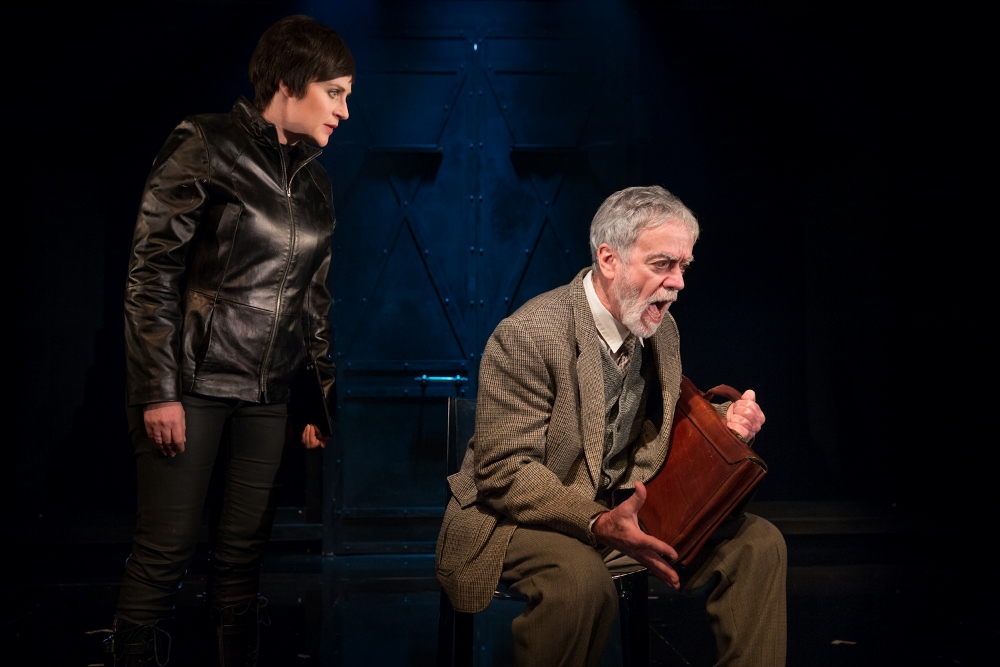The Khan Theatre production of The Nether is a provocative and deeply moving exploration of the urgent philosophical, moral, and ethical questions of our time, marked by outstanding performances by Arie Tcherner and Yehoyachin Friedlander. Directed by Aya Kaplan, the play is a sci-fi crime drama written by Jennifer Haley, that explores the potential of alternate realities created in the virtual world. The play is set at an indeterminate time in the near future, when technological advances make it possible to experience the virtual world with all one’s senses. In case there is any doubt about it, the future looks bleak, making it all the more enticing to compensate for what one lacks in real life, through the experiences of an avatar in the digital realm. Sounds good, doesn’t it?

Yet what are the implications of actions and events in this alternative reality? Do virtual actions and emotions impact life in the real world? What laws govern the virtual universe, if any? And who gets to decide? Do concepts such as right or wrong, truth or lie even exist in a virtual world? These are all questions for which our global culture has found no answers, and certainly, no consensus. Yet, when one considers the extent to which social media has permeated all aspects of life, and MMORPGs such as Second Life, it is evident that the future is now, and the need to seriously reflect on these issues is urgent.
The play explores these issues through a criminal investigation, in which the suspense builds as the revelations slowly unfold. Sims (Arie Tcherner) has been brought in for questioning by Detective Morris (Yael Tocker). The set design by Svetlana Breger is deceptively simple, at first one views an almost empty, black stage; a dark canvas on which the imagination can run free. Judit Aharon’s costume design furthers the drama as well. Sims sits in the sole chair on the stage, dressed in the uniform of a successful business man: conservative suit and tie. Morris conjures associations of The Matrix in her sleek leather jacket and boots. The internet has evolved into The Nether, a vast network of virtual realities, that even has its own policing power, as represented by Morris. Sims is under investigation for allegedly creating a realm called The Hideaway, a place where pedophiles can indulge their fantasies. Yes, in raising the ethical questions of the internet, Haley has gone for the jugular.
Although the subject matter is intensely disturbing, Kaplan’s choices as director result in a production which deals with these issues in an intelligent and sensitive manner. The role of the child, Iris, is portrayed by Suzanna Papian, a graduate of the Nissan Nativ Acting Studio, who has appeared in several roles onstage and film. Her diminutive stature and delicate features convey an eerily convincing childlike appearance. She imbues the role of Iris with an enchanting sweetness and spontaneity that serves to heighten the emotional impact of the issues raised here.
Haley’s play is rather word-dense. Given the need to describe this fictional world and go slow on revelations, perhaps this is inevitable. Luckily, Eli Bijaoui’s translation has great flow. Still, at least for this viewer, it took a while to fully engage with the drama. But it was well worth the patience.
Once past the exposition, events and emotions fly fast, furious, and intense. Venturing into The Hideaway is indeed an adventure, visually and imaginatively it stands in lush contrast to the starkness of the future-tense real world. Steeped in nostalgia, it features Victorian-era costumes and furnishings, as well as the splendors of the natural world, long since extinct in this dystopian vision. It is an enticing domain, yet it harbors violence and enables the fantasies of pedophiles.

In addition to Sims, Morris interrogates another man, Doyle. A science teacher who is a customer of The Hideaway, he makes a stirring, and disturbing case for its validity. Yehoyachin Friedlander portrays Doyle as a man who has been torn asunder emotionally yet clings fiercely to his personal truths. As he says, “I am not depressed, I am sad.”
The experience of seeing The Nether in the theatre is a study in contradictions. In its exploration of the virtual, the play evokes a heightened awareness of its physical presence. The way the actors move, any time they touch, even the simple action of scene changes as they bring out the furniture or take it offstage again, reminds us that they are there, alive and present before us.
It is this presence that ultimately conveys the power of the virtual world, through the characters of Sims and Doyle. Arie Tcherner delivers a profoundly moving performance, as his emotional fortress of defenses is infiltrated, and ultimately broken down. The suave, affluent businessman with a logical response ready for any question, is transformed into a quivering, tormented soul, his broken heart and spirit bleeding out. It is a magnificent performance, the kind of performance that resonates and echoes in the mind long after the final curtain.
The Nether
By Jennifer Haley
Translation: Eli Bijaoui; Directed by Aya Kaplan; Set and Design: Svetlana Breger; Costume Design: Judit Aharon; Lighting Design: Roni Cohen; Music: Avi Belleli; Video Art: Guy Romem – Studio Insight; Choreography: Amit Zamir; Cast: Arie Tcherner – Sims, Yael Toker – Morris, Yehoyachin Friedlander – Doyle, Suzanna Papian – Iris, Ariel Wolf – Woodnut





